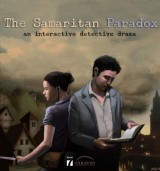We. The Revolution preview - page 2
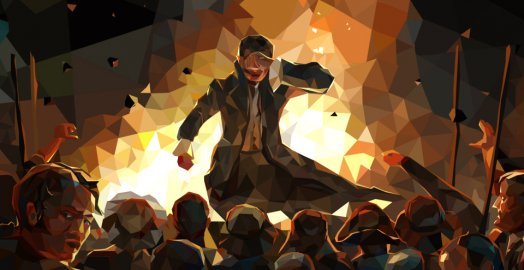
Game information
Players of this game, also enjoyed these adventure games
We. The Revolution
by Peter Färberböck
Polish game development has become quite multifaceted, with Kraków one of the major centres of a flourishing scene that will once again be of interest for fans of experimental adventure games with Polyslash’s upcoming We. The Revolution. During the French Revolution, players control a judge who wants to develop his own power base and of course survive the struggles that ensue. That may not quite sound like an adventure game at first, but it sure does feel like a mixture of different kinds of adventure games and sub-genres. At gamecom 2017, we looked into the game and were immediately under its spell.
As a judge, the player works at the revolutionary tribunal and there are many things to decide. Do we judge righteously? Pronounce freedom or the guillotine? Fortunately, in We. The Revolution we have a wider spectrum of verdicts available to us. We might instead choose to send a delinquent to prison (although that was not very merciful back then).
This would seem to be a rather secure life, as long as we don’t upset other factions, but player decisions and verdicts affect both the judge himself and even his family. And as it turns out, we'll seek to build up our own power base and thus our role is not (merely) about justice. We want to satisfy our own interests and those of the individual parties involved as much as possible.
The courtroom elicited a familiar feeling. On the one hand, it reminded us of Ace Attorney, but other parts resembled Papers, Please. During a trial, we can get information from a variety of agents or we might even want to bribe the jury. If money does not work, we may also apply some pressure – physical or mental. The judge also interviews the accused and listens to witness statements. In the journal, players can look up how different verdicts will affect the judge's reputation with the factions. By combining pieces of evidence, we can ask different questions, but be mindful, because you cannot combine evidence however you like. After using a piece of evidence once, it expires and cannot be used again. Therefore, not every possible question can be posed so we will have to choose.
If the judge skilfully controls the evidence, he may announce his desired verdict. Thus, we had some challenges to meet even in this small part of the game – not to mention deciding whether to make an ethical choice. Yet even if we completely abandon morality, we will literally have to fight for the judge’s survival. Factions, juries and the public might even try to influence our rulings. The truth really does not matter because we will either obey the law, promote political interests or even our own interests. A verdict could even be twisted into a political murder.
The court of law is not the only location, however, representing just a segment of the whole game. After each court session, the acquired influence will help us in the second part, in which we may direct spies, diplomats or thugs to get information or expand our influence in certain areas of Paris. In the demo we could only try out this turn-based mode for a very short time because we lacked the needed influence points. This suggests that some kind of strategic management of our gathered resources will help us in the future during trials or in the ultimate goal of gaining power.
Enemies are everywhere, but the protagonist is rather power-hungry and has a vast variety of resources to advance his interests. The judge can even craft letters by putting together certain elements. These might range from ironic sentences to honest details; he might even threaten the recipient. These are only examples of how to write letters to benefit your own political interest. The developers also told us that they will add a few small minigames into this part of the game. Unfortunately, they could not show us any in action just yet.
The last part of the game is quite different. We were able to observe a dialogue between the judge and his wife, where he had to choose how to react to her statements. In the finished game, this part will be presented through a mix of a traditional text-based adventuring and cutscenes implemented in the game’s distinctive low-poly look. Decisions are the cornerstone of this section, and ethics and power are at the centre of each decision.
Polyslash stressed that they are still in a fairly early development phase as they have only been in actual production less than a year. The pre-alpha scenes we saw are a polished placeholder for what’s to come, however, and the stylized visuals will remain the trademark of We. The Revolution. The developers want to create a classical style with a certain modern finish, with Pablo Picasso's oeuvre one inspiration for this striking polygonal look. The interface is also quite decent already, but the team assured us that the whole UI will be getting a large overhaul.
With the French Revolution providing the historical setting, Polyslash is purposely focusing on the atmosphere of that time period because the judge's power games might even alter history in the game. All in all, we can look forward to playing 90 different trials per playthrough, which are randomly picked from more than 100 different trials. But it also matters when certain trials occur, as the judge will not have the same resources at certain times and the story might continue quite differently according to different verdicts. The goal is to achieve great replay value and every playthrough should feel different.
At the earliest, we can expect We. The Revolution to be released in mid-2018 on Windows, Mac and Linux. As the game uses Unity, a console version has not been ruled out but nor has it been confirmed yet. One of Polyslash’s goals is authenticity, so they want to include French voice-overs with localized subtitles. There will be English and German subtitles, along with other languages.
For us, We. The Revolution was the surprise of gamescom 2017. Admittedly, we could only play an early pre-alpha build, but even this quite raw version was extremely exciting and instantly immersed us. And not just the gameplay, as the graphics are extraordinary and utterly captivating. If the same level of quality is maintained throughout the full game, this promises to be the next experimental adventure game smash hit. Everything fits perfectly with each other, and the experience already possesses a kind of natural flow and suspense. Now we can only wait intently for next spring and begin our preparations to gain power in 18th century Paris.
If that's not enough to rouse your revolutionary spirit, read on as Ingmar Böke chats with Lukasz Jozefowicz of Klabater, the game's publisher, to learn even more about this unique take on French history.
Ingmar Böke: The concept for We. The Revolution, which is currently being developed by Polish studio Polyslash, sounds quite fascinating. Please describe it in your own words.
Lukasz Jozefowicz: The player plays a judge, who starts off as a minor judge before the French Revolution, but when things blow up, you’re actually called to become this powerful judge. At first, you and your character pretty much just want to survive in those times because you don’t really know who your friends and enemies are, and people are getting backstabbed all the time. But as you play, you will learn that the more power you have, there’s more you can achieve, but you’re also becoming more of a target. We like to call We. The Revolution an adventure game because that’s a broad term, and we can put a lot of things into it.
Ingmar: Let’s talk about some of the different types of gameplay involved.
Lukasz: The main gameplay revolves around three things: One is case-building because during your trials you will assess the evidence, you will manually question and listen to the testimony of the accused, and then you will pass a sentence. It’s up to you whether you want to sentence someone to die, send them to prison or set them free. You will have to take the opinion of the jury and the people into account, though, and you will have to maneuver between the expectations of those fighting for power in Paris at the time.
But you will have the tools to influence other people. As you’re looking at the evidence, you’re connecting the dots, so to speak. You’ll unlock different lines of questioning, and you can see what a given kind of questioning will do to a given case. You may focus on just one aspect of the case, and completely omit the other, which can change the public’s opinion of the accused the way you want it to. In a way, truth doesn’t matter, it matters what you want to do. You can, of course, follow the law the way it was written. I mean, in those times if somebody stole an apple you probably wouldn’t want to send that person to death, right? (everyone laughs)
Ingmar: Not really!
Lukasz: There is a codex and there are rules, but they will change all the time because the revolution was a dynamic thing, and there were new developments constantly; leaders were getting killed off, being replaced by new leaders with different ideologies. So, you can either follow the current rules or maybe do what you feel is right as a contemporary person, and sure, you can manipulate the trials a little bit to do that. But then, also, you might just want to set yourself up politically. For example, the accused actually murdered someone, and it wasn’t self-defense, but this person has some political friends and you may want them to have your back. Then it would be beneficial for you to let someone like that go free. This is not right by the letter of the law, but it will be good for you when it comes to building your own power base.
As you end your day at court, you have kind of an adventure mode where you can take part in different events and make some choices – sometimes it’s text-based, sometimes it’s more like cutscenes. You can have conversations with people. For example, in the demo, there is this group that wants your support. You can promise them your support if you want, and then you’ve got to write a letter of support, which happens as kind of a minigame where you’ve got to compose three parts of a letter. You can do anything with it! You can start with humility, and then move to some aggressiveness or dismissiveness or a joke, or you can go aggressive throughout.
When you craft a letter that you like, and that you think might be effective, the third gameplay element is deployed, which is kind of turn-based. There are things that you can’t do yourself, so you have agents in the city that will do it for you, and who will help you to expand your influence. You have a map of Paris, and you have your agents; each agent can only receive one order per day, and each day consists of the three parts: courtroom, conversations/events and the agents’ direction. This is the core gameplay.
Ingmar: How did you approach the court cases?
Lukasz: It was interesting when we did research on how the justice system worked back then. You could basically be accused of anything without any evidence, then the judge would look at you, ask you a few questions, and decide whether you’re going to die or whether you’ll be set free, but there was nothing in between. For one, we just decided that’s ridiculous: you need to have something to base your opinion on, you’ll need to have some testimonies, and you’ll need to be able to question witnesses as well as the accused. So this diverts from history a little bit, but it makes for better gameplay.
Secondly, we have added the prison sentence. We discovered that, basically, being given an option to kill someone or let them go is not fun. For a game, it’s just not good or right because you feel like you’re being pushed to do something you don’t want to do. Prison gives you a bit of leeway when you feel like, “well, yeah, he’s guilty, but should he really die for this particular crime?” You will be presented with evidence, but also, sometimes during cases you’ll receive notes from your agents who are working for you behind the scenes. Maybe you’ll get, like, an update to an event you were a part of previously or you’ll get to know something that’s going on in the city, so you can make some decisions during trials, and you’re constantly getting things done.
Ingmar: It seems like we’re going to have quite a bit of influence on the way events play out. How close to history is the game going to be?
Lukasz: Although the game is set in a historical setting, and you’ll meet historical characters and be thrown into historical events, I wouldn’t strictly call it a historical game. We want your decisions to have an impact on your surroundings, on your family, and on the people you meet, so the longer you play, the more the game diverges from history. We kind of focused more on the atmosphere, what the French Revolution was about, and what it was like to be a political operator at the time. You could not say no to a proposal like this, being a judge at the revolutionary tribunal, you just had to accept it because everybody had to be a revolutionary at the time, right? Otherwise you were associated with the bourgeoisie, and you don’t want that. We want you to feel that, we want you to feel unsure, and a little trapped in this terrible world because there was no escaping the terror. You just had to live day by day, and that’s what we focus more on.
Ingmar: You mentioned that we’ll also have an impact on the judge’s family. How important is the aspect of family and the judge’s private life going to be?
Lukasz: As with every other aspect of the game, it’s up to the player to decide. There are many facets of the judge’s life and career, and each of them can be treated as our number one priority. Sure, you can focus on your political career, using your position as the judge only as means of securing your political power. That will probably make you a poor jurist, but if the player decides that’s not their goal, it won’t really matter. It’s the same with the family life aspect. You’ll be able to focus on that and play to achieve your goals in that particular area, rather than others. Securing your family’s wealth, safety, and maintaining harmonious relationships with your loved ones can just as easily be the main motivation to play.
Ingmar: Your flyer says that We. The Revolution is going to contain more than 100 court cases. How long is one single case going to be, and how many of them are we going to see in one playthrough?
Lukasz: It depends. Just related to the court cases, not an entire day, I would say the cases take between 5-15 minutes. It’s a reasonably long game, and our plan is that you will see around 90 in one playthrough. They’re not randomly generated; they’re randomly kind of picked up from a pool of pre-made court cases. You’ll not be facing the same order of cases all of the time, so it’s not only that you get different cases at a different point in your gameplay, but also your standing with factions and your standing with people will be different at different points of the game. So, if you have the same case but at a different point, you’ll be at a different spot, and you’ll have to approach the case a bit differently. I cannot say that the game will be entirely different during a second playthrough, but you’ll have to adapt!
Ingmar: On what platforms is We. The Revolution going to be released?
Lukasz: For 100% it’s going to be released on PC, Mac, and Linux. When it comes to consoles we’re not saying no, and we’re looking into that very strongly because we would like to do that simultaneously. We. The Revolution could be good for mobile devices, but the truth is that we do not feel good in this environment as we don’t have the experience; we are experienced with consoles and PCs.
Ingmar: What can you say about the release date?
Lukasz: The game will launch in 2018, but we don’t know exactly when. As of now, we’re aiming for a September release.
This shared article also appears on the German website Adventure Corner. The preview by Peter Färberböck has been translated and reprinted here with permission.


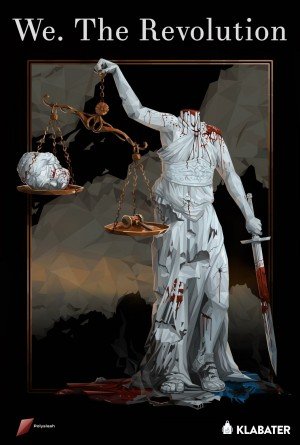
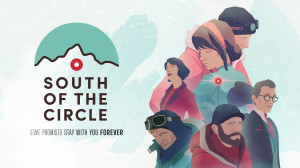



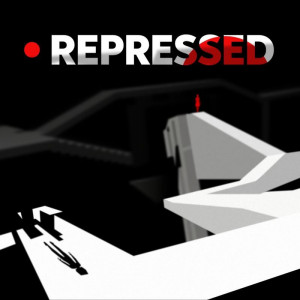
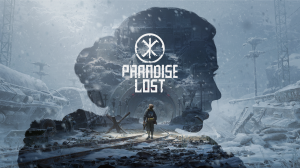


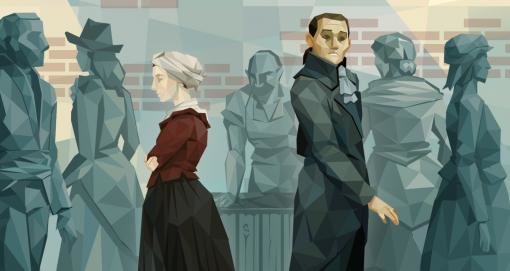
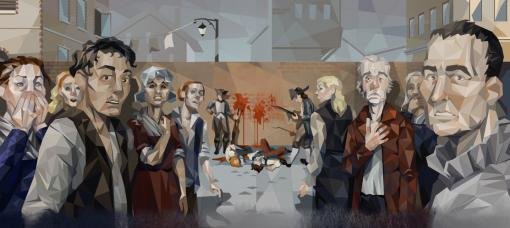
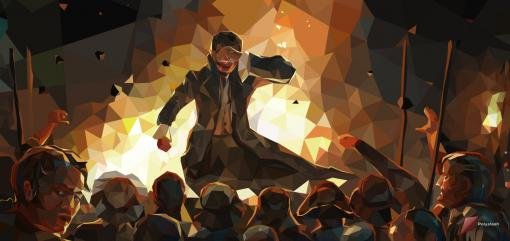
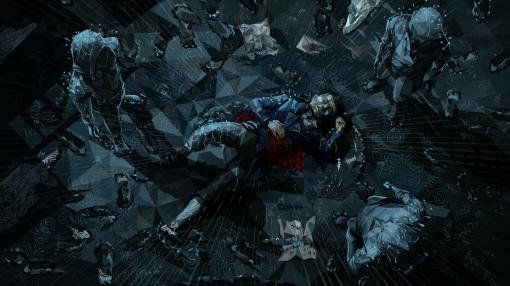
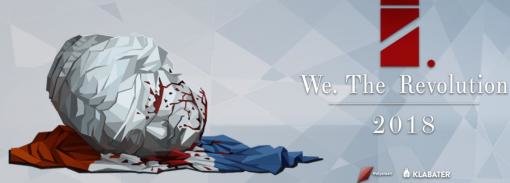


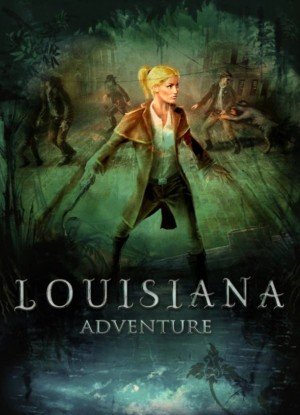
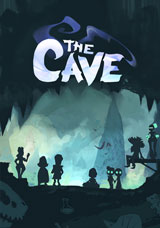




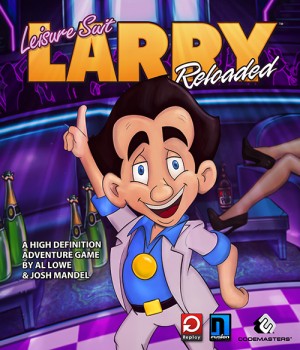

__small.jpg)







